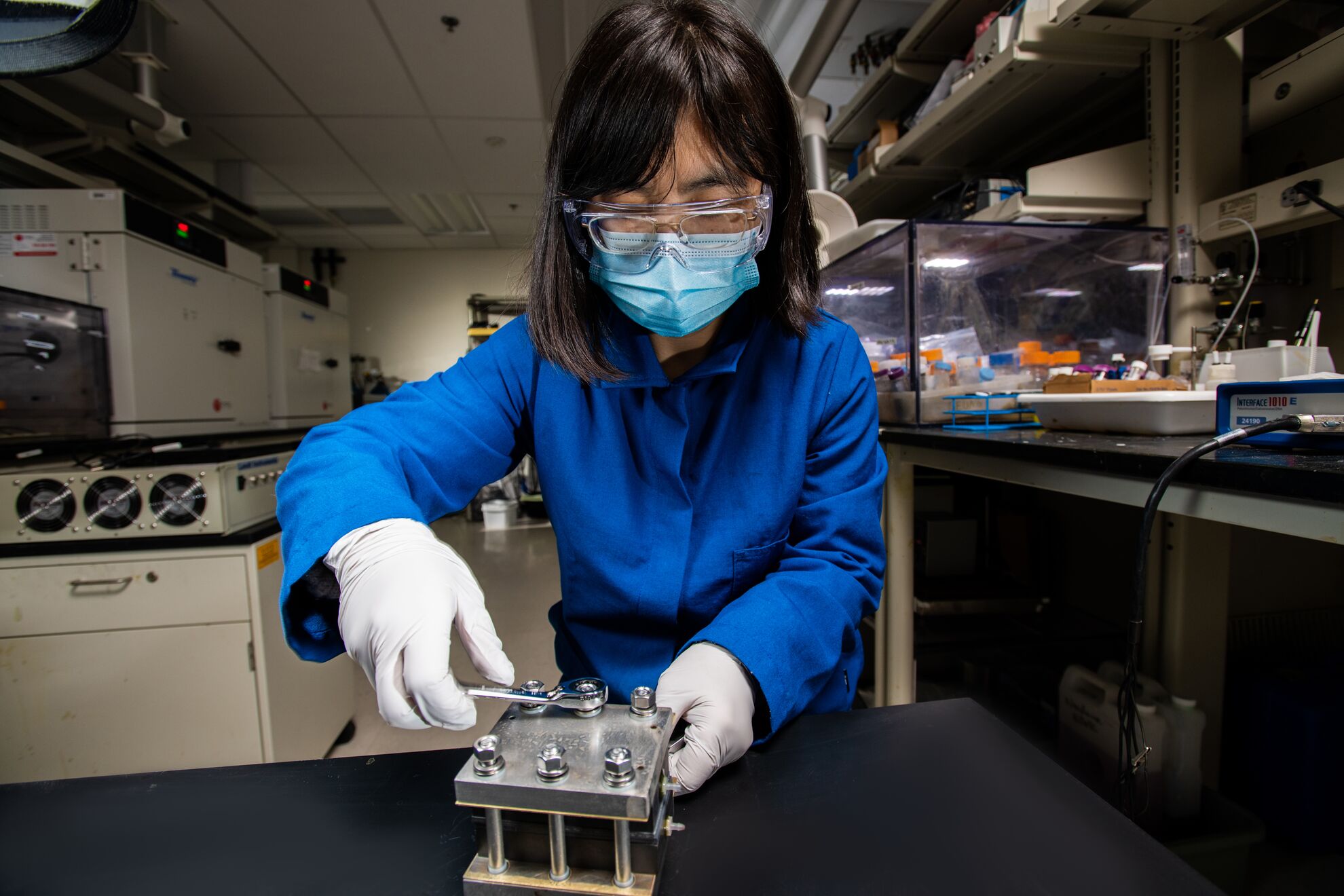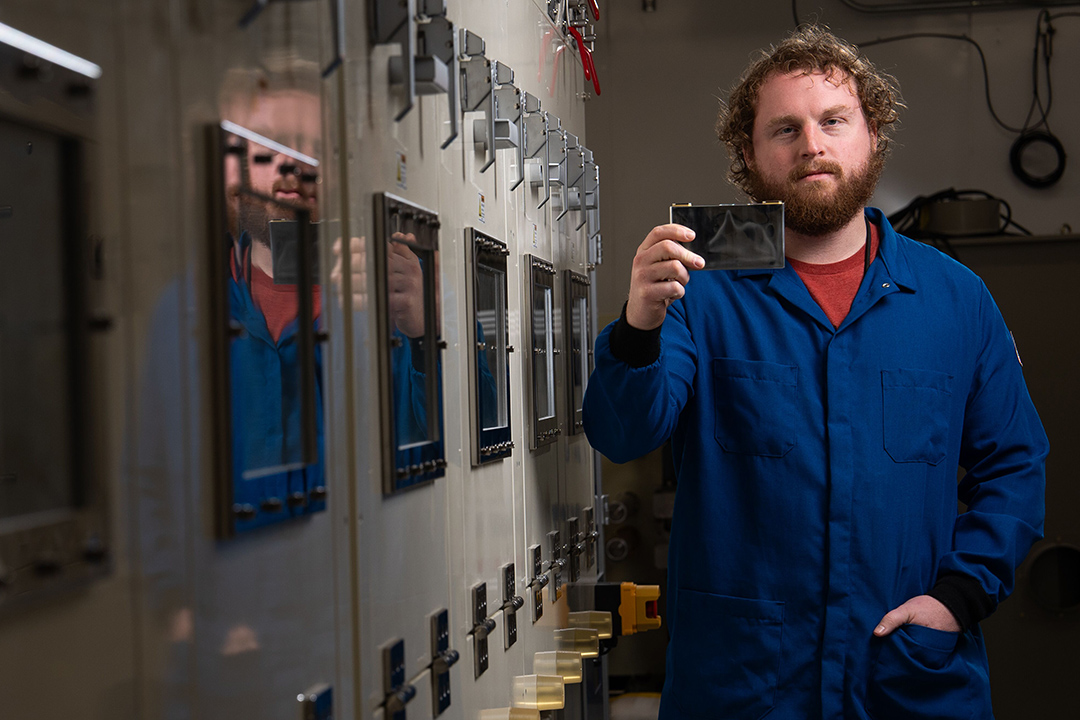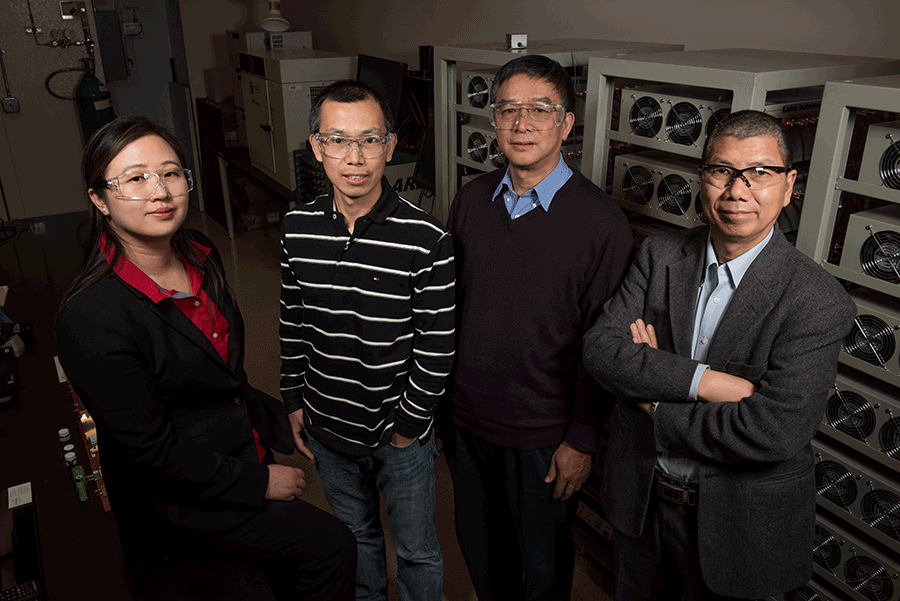
Energy Storage
Energy Storage
Batteries and so much more
Batteries and so much more
PNNL’s Battery Testing Laboratory features several temperature chambers, where battery performance is monitored while the cells are charged and discharged repeatedly at both high and low temperatures.
Andrea Starr | Pacific Northwest National Laboratory
Stay connected with our research, highlights, and accomplishments with the monthly PNNL Energy Storage Newsletter. Learn more here.

Next-generation energy storage technologies keep our world moving forward. Over the last several decades, PNNL has seized the energy storage challenge and, in collaboration with stakeholders and research partners, is modernizing energy storage solutions to enable U.S. dominance in the global energy market.
Energy storage can address crosscutting challenges in grid and transportation to support a reliable, affordable, secure, and resilience electric grid. PNNL is distinguished in energy storage research and development by its capabilities to:
- Validate emerging technologies through independent testing of energy storage materials and systems under realistic grid operating conditions.
- Accelerate deployment of new technologies by propagating rigorous grid performance requirements and safety standards in all stages of development, including materials, power systems, and artificial intelligence and machine learning.
- Collaborate with researchers, end users, manufacturers, regulators, and governmental agencies
,to develop and launch promising energy storage technologies on a path to deployment. - Educate, train, and develop the workforce of the future, from skilled laborers to first responders and safety officials to utility planners and regulators.

Advancements in energy storage are critical to the resilience of the electric grid, our most complex machine.
Learn how the grid powers America
At PNNL, we connect cutting-edge fundamental scientists with end-use domain experts to discover and develop new energy storage technologies for grid and transportation. PNNL built the Grid Storage Launchpad, an innovation and testing facility to accelerate development, validation, and commercial readiness of energy storage systems.
For transportation applications, we collaborate with researchers across the country on large energy storage initiatives. We lead national programs like the Battery 500 Consortium to improve energy storage for vehicles. The goal is to more than double the energy output per mass compared to existing batteries.
Scientific foundations and technology development
Our science focuses on how atoms, molecules, and materials function across spatial and temporal scales to improve electrode and electrolyte design for batteries. Beyond batteries, we also study ways to better store energy in chemical bonds.

PNNL’s energy storage experts are leading the nation’s battery research and development agenda. They include highly cited researchers whose research ranks in the top one percent of those most cited in the field. Our highly-cited researchers work on game-changing approaches to a host of technologies that are part of the U.S. Department of Energy’s mission. These range from electrochemical storage technologies like batteries to mechanical storage systems such as pumped hydropower, as well as chemical storage systems such as hydrogen. Additionally, PNNL’s research enables buildings and other grid assets to provide storage-like services.
Our understanding of the power grid guides research that provides operators more options to balance the grid. Our experts in advanced building controls are helping buildings become part of the energy storage solution, enabling homes and buildings to flex and adjust their loads automatically.
Implementation and deployment
PNNL research provides a clear understanding of the technology needs for integrating energy storage into the grid. We work with utilities and industry to assess the optimal role for energy storage installations under local operational and market conditions. Our research teams support field deployments where we work with stakeholders to characterize the value, understand usage and controls, and generally improve the benefits that energy storage systems provide to the grid. These data, provided to all stakeholders, assure that research development and deployment is working toward a brighter energy future for America.
Understanding the benefits of the wide variety of storage technologies and developing the critical advancements required to bring down the cost of energy storage will help integrate a variety of energy resources into the grid.

